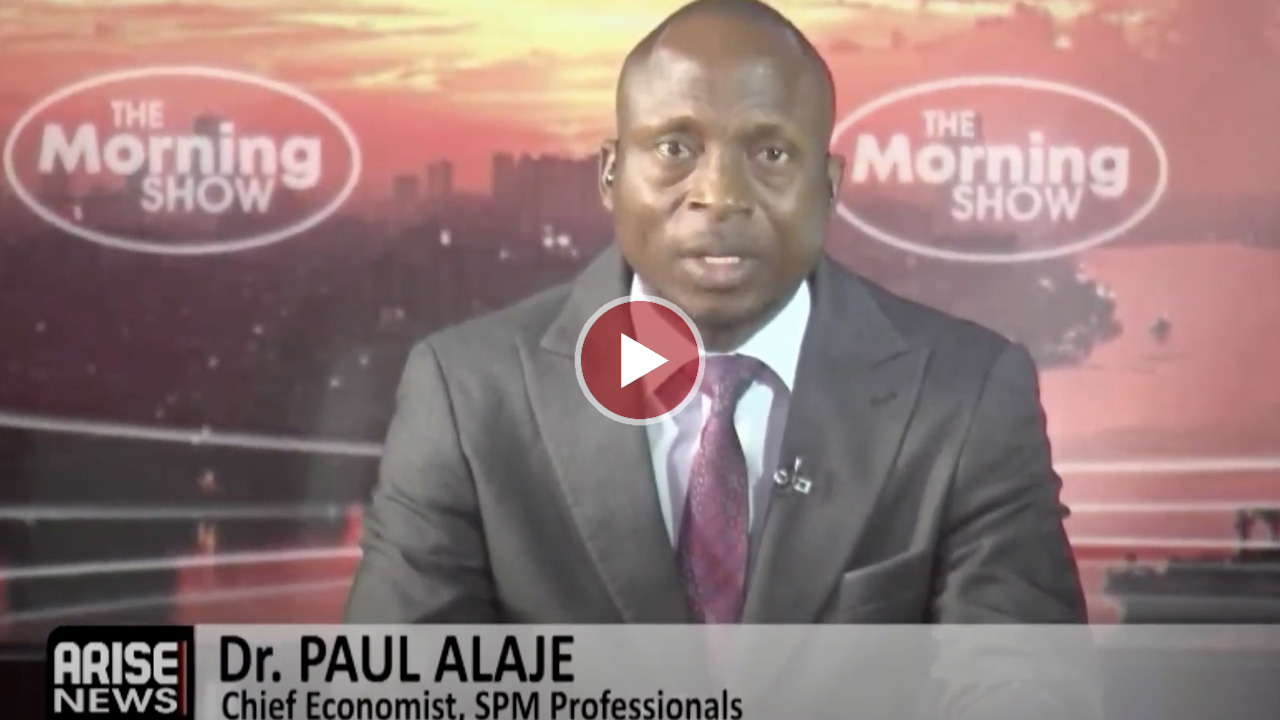
Chief Economist at SPM Professionals, Dr Paul Alaje, has urged Nigeria to take deliberate steps towards managing its growing population to avoid worsening poverty and inequality.
Speaking during an interview on ARISE News on Tuesday, Dr Alaji said Nigeria might not escape the World Bank’s projection that its population will surpass 320 million by 2050, stressing that “we need to do a lot of work” to prepare for it.
He explained that while population growth could bring opportunities, it must go hand in hand with improved productivity and resource development. “Population is neither a curse nor a blessing. It depends on what you do with it,” he said. “We cannot discuss population without discussing available resources and productivity. The three of them must be discussed together.”
On how to turn population into an economic asset, he said Nigeria must learn from China’s experience and focus on industrialisation. “Population without productivity and abundant resources is useless. To make our population useful, we must learn from China,” he noted. “China understood that if you have large numbers, it takes industry to absorb them.”
Dr Alaji compared Nigeria’s economic size with its population, warning that the imbalance contributes to widespread poverty. “When you look at Nigeria’s GDP at about $245 billion and our population of over 237 million, you see that Nigeria will be classified among poor nations,” he stated. He contrasted this with the United Arab Emirates, which has a smaller population but greater wealth per citizen.
Outlining options for Nigeria’s future, the economist said, “We have three options: one, to go deliberate on population control; two, to build our resources and productivity; or three, to do both together. My option would be the third, increase resources, improve productivity, and deliberately curtail population.”
On the country’s economic targets, Alaji said Nigeria’s goal of achieving a $1 trillion economy would remain unrealistic unless growth accelerates significantly. “To achieve the $1 trillion economy target, we need to grow by about 17% year-on-year in GDP. But our current growth rate is between 3% and 4%, so we are far off,” he said. “Growth drivers such as manufacturing, infrastructure, power, and energy must be prioritised. If we focus on these, we can reach 7–8% growth in three years and later move into double digits.”
Dr Alaji emphasised the need for accurate data to inform national planning, urging the government to conduct a new population census. “It’s also high time we conducted another national population census. The last holistic census was done in 2005 or 2006. Since then, what we’ve been running are estimates,” he said. “It’s important that we come up with another census because this affects how resources are shared among states and local governments, and even discussions around state creation.”
He lamented that although Nigeria is creating jobs, most of them benefit foreign economies. “Nigeria’s economy is creating jobs in manufacturing, agriculture, and services but most of the jobs are not in Nigeria. The equipment, devices, and platforms we use daily are all produced abroad,” he said.
Calling for urgent action, Alaji stressed: “What we must do is bring manufacturing into Nigeria. Federal and subnational governments must agree, irrespective of party or religion, that we want to develop.”
He also urged the Manufacturers Association of Nigeria to play a leading role in driving economic development, adding, “Until this is done, we will continue to see population as a burden.”
Dr Alaji concluded that expanding Nigeria’s manufacturing base is essential to national prosperity. “In the structure of our economy, services dominate, followed by agriculture, while manufacturing takes a tiny share. We need to expand that manufacturing base significantly. Once that happens, Nigeria’s economy can truly be liberated.”
Faridah Abdulkadiri


